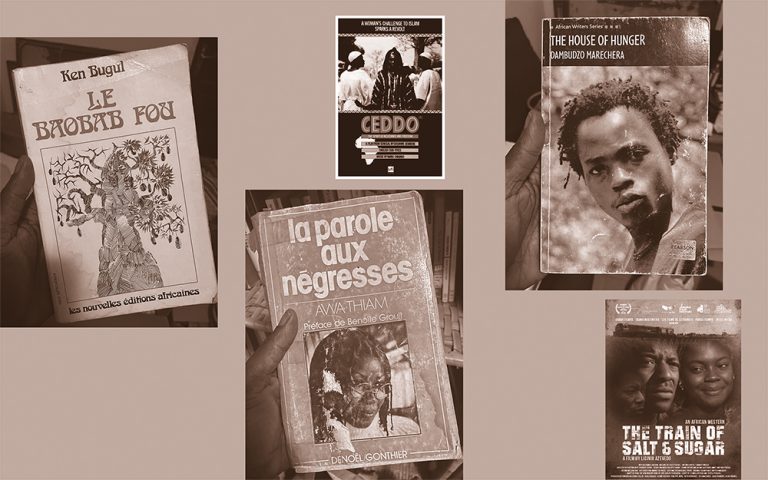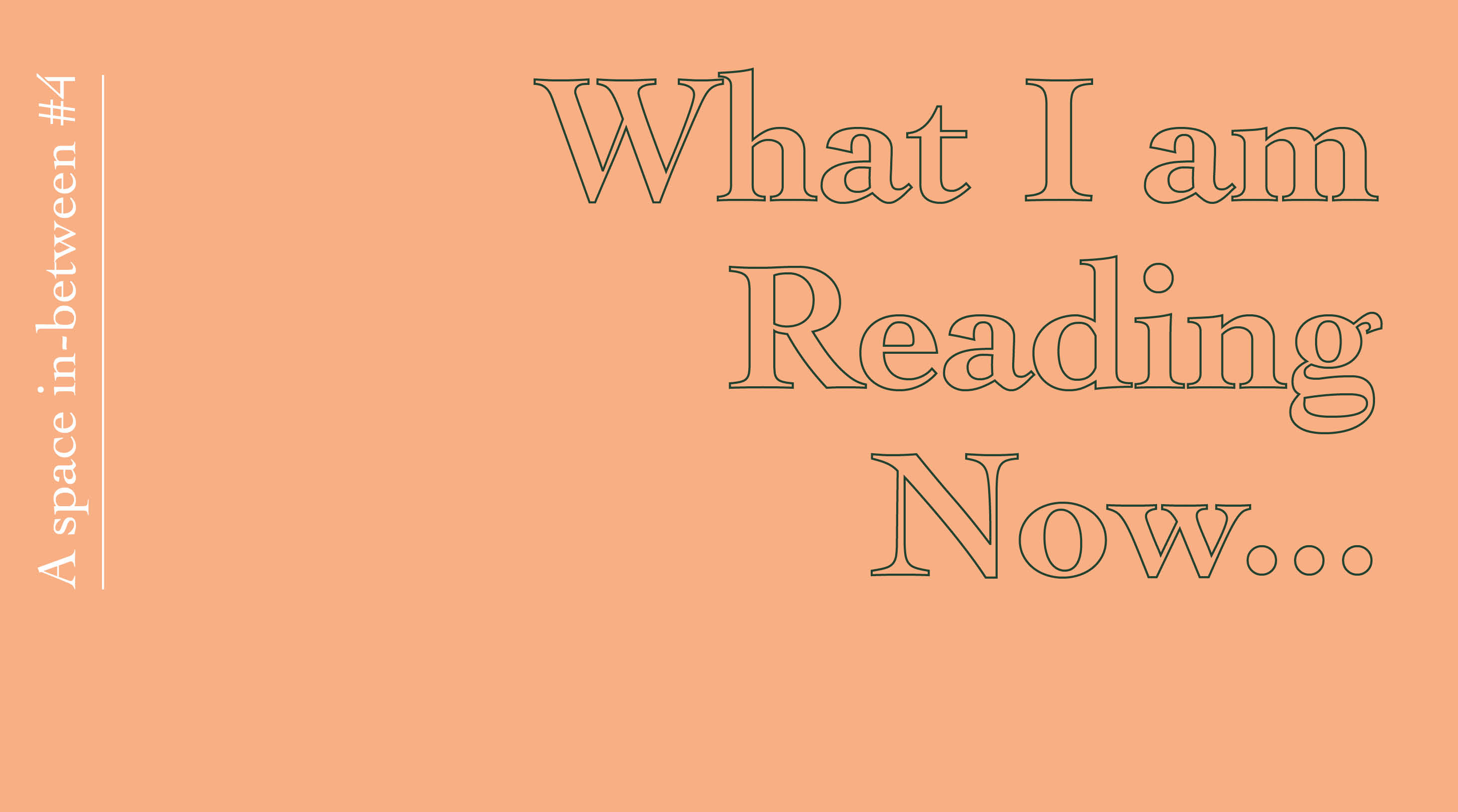What I am Reading Now…
Marie Hélène Pereira
February 2023
These oeuvres are not what I’m reading now. They are materials that I keep reading and reading again alongside my way… They accompany me, they have been my companions in an ongoing quest of rootedness and ongoing human and political consciousness.
In a time of transition both personally and professionally, it’s been an interesting exercise to go through my library and see what I want and have to carry with me everywhere, what would keep bringing clarity, positive energy and motivation my way.
Growing up in Dakar, a very vibrant city full of amazing treasures but also contradictions, I quickly learned to navigate its spaces knowing that at different moments in time and history women had to make their voices loud enough to be heard and listened to.
Ken Bugul’s writings have constituted tools to be able to negotiate our presence in said spaces. Le Baobab Fou (The Crazy Baobab) her first published novel, which was initially censored, has and still to this day represents a thoughtful voyage into the condition and resilience of women in spaces of oppression and discrimination. She narrates the story of a young girl who grew up in a village in Senegal but studied well enough to be sent to the capital city then abroad in Belgium. Cultural choc, exoticization, sex and prostitution are an integral part of her atmosphere and will force her to create a protection shield by her own means. One of the main questions that led the novel to be censored is, I believe, the openness that the writer chose to narrate the story with. Freedom of speech, especially when it comes to women, in traditional Senegalese societies has been quite a debate due to the high respect shown towards the elders, the notables, the religious chiefs, public order and good manners, you name it…
I always wondered how six years earlier in 1978, bold writer Awa Thiam was able to release La Parole aux Négresses in this conservative place! The feminist discourse in Senegal is often traced back to her writings, however more and more practitioners are interested in a disruption of the term and its western centered meaning. Plurality of feminisms and feminist views are to be explored and can be sensed in Awa Thiam’s short stories among many others today.
In a never-ending quest of decolonial thinking and practice, I’m always digging back into House of Hunger and the strong oeuvre of Zimbabwean writer Dambudzo Marechera and his aggressive but frank words that have been subjected to endless shadowing for decades. His line “They brought us religion and stole our lands” has a strong connection with the discourse of Senegalese renowned filmmaker Ousmane Sembène in his seminal film Ceddo, portraying the arrival of so-called revealed religions in Senegal.
The writing of our own stories has been central to my intellectual curiosity and I have been more and more exploring the ones of Lusophone African countries such as Guinea Bissau, Mozambique, Cape verde, Angola and Equatorial Guinea. Licinio Azevedo’s fiction film The Train of Salt and Sugar gives an insightful dive into the civil war era in Mozambique that started in 1976 right when Portuguese colonial powers left the country. As hard as it can be, the many stories that exist in the film have shown the power of love and humanity despite the presence of sadness and sorrow.
What I’m reading now cannot be contained into one page, nor one library. What I’m Reading is also the fruit of ongoing conversations with friends, colleagues, mentors, fellow wanderers, new encounters, cities and places.
Marie Hélène Pereira is a curator and cultural practitioner from Dakar, Senegal. She was Director of Programs at RAW Material Company where she organized exhibitions and related discursive programs including the participation of RAW to We face forward: Art from West Africa Today Whitworth Art Gallery, Manchester; ICI Curatorial Hub at TEMP, New York; The 9th Shanghai Biennial, Shanghai; MARKER, Art Dubai (2013).
She co-curated Scattered Seeds in Cali-Colombia (2015-2017) and curated Battling to normalize freedom at Clarkhouse Initiative in Mumbai, India (2017). Pereira was a co-curator of Canine Wisdom for the Barking Dog – The Dog Done Gone Deaf. Exploring The Sonic Cosmologies of Halim El-Dabh at the 13th edition of Dakar Biennale of Contemporary African art (2018), as well as Still Present! – the 12th edition of Berlin Biennale (2022).
In 2021 she was selected as a recipient of the ICI Curatorial Research Fellowship – a Marian Goodman Gallery initiative conceived by artist Steve McQueen – in honor of the late Okwui Enwezor. Pereira has a strong interest in politics of identity and histories of migration.
Reading,
Le Baobab Fou, Ken Bugul (Nouvelles Editions africaines, 1984)
La Parole aux Négresses, Awa Thiam (Denoël, 1978)
House of Hunger, Dambudzo Marechera (Penguin Classics, 2022, first published 1978)
Watching,
Ceddo, Dir. Ousmane Sembène (Film Doomi Reew, 1977)
The Train of Salt and Sugar, Dir. Licinio Azevedo (Ukbar films, 2016)

Please note the views published in What I am Reading Now… are personal reflections of the contributors.
These may not necessarily represent the views of the University of Dundee.
———
Previous Issue: Sophia Al-Maria, January 2023
Next Issue: Varsha Nair, March 2023
